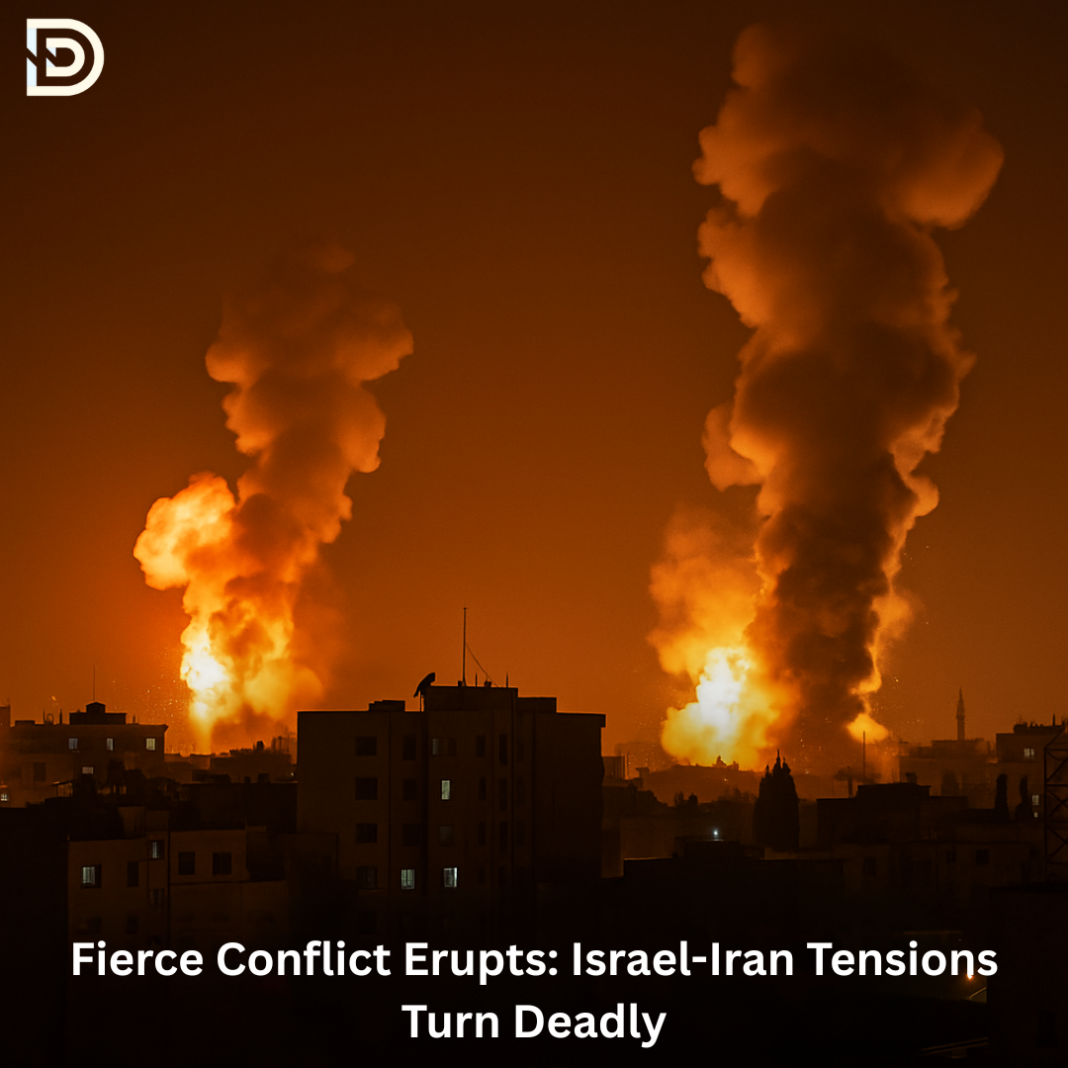Midnight Attack Begins
On Friday morning at 00:56 GMT, a new and dangerous conflict began in the Middle East. Israel launched a surprise military operation called “Rising Lion.” This operation involved a series of airstrikes on important Iranian cities and facilities. The main targets were Tehran, Iran’s capital, and Natanz, a city known for its nuclear research sites.
Operation Rising Lion – Israel’s Loud Message in Silence
Focus on Nuclear Locations
The airstrikes aimed to damage nuclear infrastructure. These are places where Iran is believed to be developing advanced nuclear technology. Israel has long viewed such facilities as a threat, and this strike was one of the most serious actions taken in recent years.
High-Ranking Commanders Lost
The Iranian government later confirmed that at 01:09 GMT three high-level military figures were killed during the attack. These losses are considered very serious, as they involved key people responsible for Iran’s national defense and security planning.
At around 01:30 GMT, reports emerged that senior Iranian diplomat Ali Shamkhani had been assassinated, further escalating the gravity of the situation. His role in strategic military and diplomatic coordination made his death a significant blow to Iran’s leadership structure.
Israel Iran War Live: 🔥 Breaking: IRGC Chief Hossein Salami Reportedly Dead in Israeli Bombing
Explosions Across Major Cities
Shortly after the operation began, massive explosions were reported in Tehran, Natanz, and Khorramabad, following Israel’s targeted airstrikes. These blasts, launched by Israel, lit up the night sky, shook buildings, and caused widespread panic among residents. Videos from the area showed fires, smoke, and sirens throughout the cities.
Chaos Erupts in Iranian Cities Tehran, Natanz, Khandab, and Khorramabad After Attack by Israel
State of Emergency Declared
In response, at 01:40 GMT Iran declared a national state of emergency. All airports were closed, and Iran’s entire airspace was shut down. This meant that no planes could fly in or out of the country. Emergency services were put on high alert as the nation began dealing with the damage and preparing for any further strikes.
Emergency declared amid brutal strikes as Iran reels from Israeli assault
Regional and Global Reactions
Jordan Declares Neutral Stance
At around 02:00 GMT, the neighboring country of Jordan made an official announcement. It stated that Jordan would not allow its airspace or land to be used in the conflict. Jordan’s leaders said they wanted to stay neutral and avoid being drawn into the fighting between Israel and Iran.
United States Takes Step Back
By 02:15 GMT, the United States government clarified that it had no role in the operation. Officials stressed that their main concern was to keep American troops safe in the Middle East. A special emergency meeting was held at the White House to assess the situation and prepare for any indirect effects.
Jordan Shuts Airspace to Avoid Fallout From Relentless Middle East Strikes
Flights Rerouted or Cancelled
By 03:00 GMT, airlines around the world started changing their flight paths. This happened because Iran’s closed airspace made it unsafe for international flights. Major airlines such as Air India were forced to divert flights, affecting passengers and routes across South Asia, the Gulf, and Europe. Airports in several countries began reporting delays and cancellations.
Airlines Reroute Flights Amid Explosive Middle East Conflict
Markets React with Uncertainty
By 04:00 GMT, the global economy began to feel the shock.
- Oil prices jumped over 6%
- U.S. stock futures fell between 1.5% and 1.8%
- Gold reached record-high prices
Investors became nervous, fearing that the situation could worsen. Many moved their money out of risky investments and into safer options like gold. These quick changes showed how closely the world watches events in the Middle East.
Oil Prices Surge Sharply By 6% After Israel Launches Major Strikes on Iran
Tensions Rise as World Leaders Call for Calm
International Condemnation Grows
By 05:00 GMT, several countries began to speak out. France, Australia, and New Zealand criticized the Israeli strikes, calling them preemptive and aggressive. They said such actions could destabilize the region and bring harm to innocent civilians.
Global Bodies Urge Restraint
Major global organizations like NATO, the European Union (EU), and the United Nations (UN) quickly joined the conversation. They called on both Israel and Iran to stop the violence and avoid further military actions. They stressed that peace and dialogue were needed to prevent the situation from spreading.
Iran Promises Strong Response
At 06:00 GMT, Iran released a strong warning to the world. Its government promised “decisive retaliation” in response to the airstrikes. Though no military actions were reported immediately after, Iranian officials said that they were preparing to respond quickly and powerfully.
Iran’s Red Line: “Bitter, Painful Fate” Awaits Israel After Operation Rising Lion
Global Oil Concerns Rise
The conflict also raised fears about oil supply routes. In particular, attention turned to the Strait of Hormuz, a narrow waterway between Iran and Oman. This route is very important because a large portion of the world’s oil passes through it. If anything disrupts movement in that area, oil prices could go even higher, affecting everyday fuel and energy costs across the globe.
A full-scale military clash between Israel and Iran has begun with Operation Rising Lion, resulting in major airstrikes, loss of top military officials, and serious global consequences. The Middle East is on edge, world markets are reacting, and international leaders are calling for peace. The situation continues to evolve quickly, with millions watching closely.

